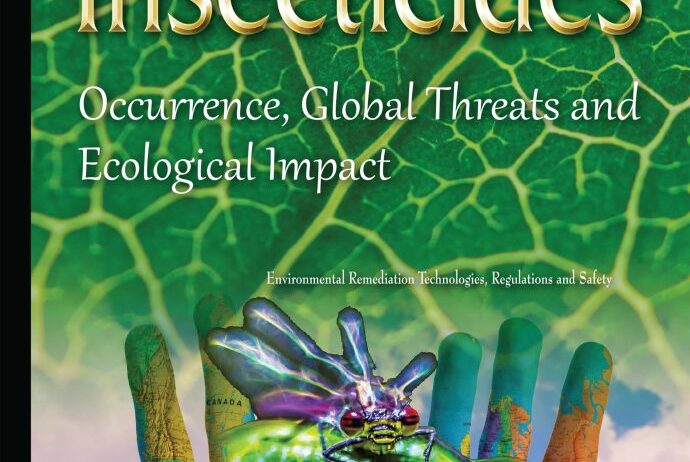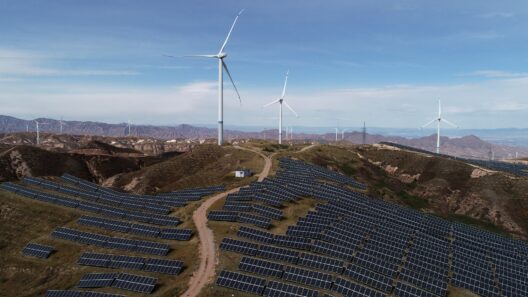The significance of insecticides in the realm of agriculture cannot be overstated. They have been instrumental in enhancing crop yields and controlling pest populations. However, when examining their broader implications, it becomes increasingly evident that these chemical agents may also partake in the current burgeoning crisis of global warming. This analysis seeks not only to elucidate the precarious interplay between insecticide usage and climate dynamics but also to illuminate the underlying reasons that compel continued reliance on these substances.
To grasp the connection between insecticides and global warming, one must first appreciate the multifaceted nature of insecticide application. Farmers deploy these chemicals to protect their crops against invasive species and pests that threaten their profit margins. Nevertheless, the production, formulation, and application of insecticides release greenhouse gases into the atmosphere. The processes involved in synthesizing these chemicals often entail the burning of fossil fuels, a primary contributor to global warming.
Moreover, the application of insecticides can disrupt local ecosystems, precipitating a cascade of ecological consequences. A reduction in biodiversity, particularly concerning beneficial insects such as pollinators, can inadvertently lead to diminished plant growth and health. Healthy plants absorb carbon dioxide, a predominant greenhouse gas, during photosynthesis. Consequently, the degradation of plant life due to indiscriminate insecticide usage can reduce the overall capacity of ecosystems to sequester carbon, thereby exacerbating global warming.
The phenomenon of nitrogen oxide emissions must also be scrutinized in the context of insecticide usage. Fertilizers, frequently used alongside insecticides, release nitrogen oxides when they decompose in the soil, and these gases have substantial warming potential. In agricultural systems where insecticides are routinely applied, the potential for atmospheric accumulation of nitrogen oxides is significantly heightened, contributing further to the greenhouse effect.
An exploration of chemical interactions reveals another layer of complexity regarding insecticides. These substances can persist in ecosystems, with some remaining in the environment long after their initial application. When they break down, they often do so into byproducts that can also be harmful to non-target species, including beneficial microorganisms in the soil. The microbiome is crucial for nutrient cycling and plant health. When these microorganisms are compromised, the resulting imbalance can impede plant growth rates and ultimately reduce the carbon capture potential of vegetation.
The agricultural paradigm that prioritizes high-yield crops often leads to monoculture practices. Monocropping relies heavily on specific insecticides tailored for the pests that threaten a singular crop. This agricultural model can further alienate ecosystems by inhibiting natural resistance mechanisms that help mitigate pests and diseases. Such practices may create a feedback loop where increased reliance on insecticides generates even more pest populations, necessitating further chemical interventions. This cycle can ultimately lead to higher greenhouse gas emissions as each application entails energy-intensive production.
Furthermore, alternative pest management strategies exist, yet their adoption is frequently hindered by prevailing economic models and a lack of awareness among farmers. Integrated Pest Management (IPM) is a holistic approach to pest control that can significantly reduce reliance on chemical insecticides by combining biological, physical, and cultural methods. Yet, it requires a paradigm shift in how we approach agriculture—one that values sustainability over short-term gains. Transitioning to IPM could curtail both the direct emissions associated with insecticide production and the broader ecological ramifications of chemical reliance.
This lingering reliance on chemical insecticides is also shaped by socio-economic factors. Farmers, often facing mounting pressures to produce more with fewer resources, may feel compelled to use insecticides despite their environmental and economic costs. Large agribusiness corporations perpetuate this cycle, promoting the use of their chemical products to maximize short-term agricultural output. The entrenchment of this model results in substantial inertia against reforming agricultural practices, thus prolonging the detrimental impacts on climate.
To effectively mitigate the role of insecticides in global warming, a multipronged strategy is imperative. Public policy can play a pivotal role by incentivizing sustainable agricultural practices and funding research on alternative pest control solutions. Education efforts can help farmers understand the long-term benefits of reducing reliance on chemical insecticides, both for their crops and the environment.
Additionally, consumers can drive demand for sustainably produced agricultural products, thereby motivating farmers to transition to methods that do not rely heavily on insecticides. The power of consumer choice is a formidable force that can reshape agricultural practices on a large scale. Coupled with community engagement and activism, these efforts can foster a transformative approach to agriculture that prioritizes ecological balance and sustainability.
In summation, while insecticides have been indispensable in modern agriculture, their ramifications extend beyond improved crop yields. The interplay between insecticide usage and global warming illustrates a complex web interwoven with ecological, economic, and social threads. Recognizing the profound implications of agricultural choices is crucial. It’s imperative to shift toward sustainable practices that balance productivity with environmental stewardship to address the pressing challenge of global warming. Only through a concerted effort across the spectrum—farmers, consumers, policymakers—can we hope to mitigate the environmental impacts of insecticides and lower our carbon footprint, thus working toward a more sustainable future.








